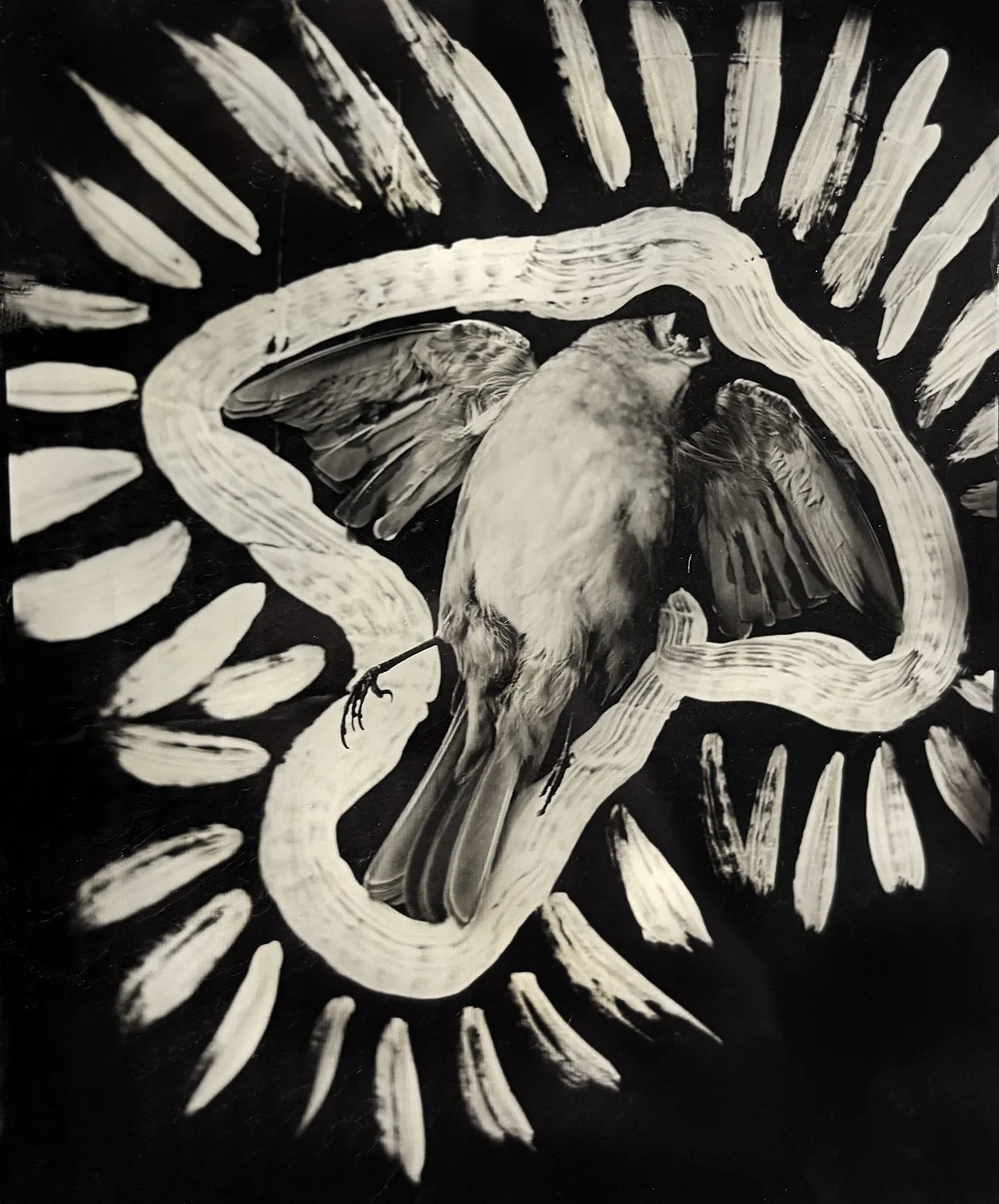I made this image today using a dead bird mounted on black-painted cardboard, then worked around the body rather than on it. The decision felt important. I didn’t want to manipulate the bird into meaning or turn it into a symbol that behaved too neatly. I wanted to acknowledge the body as it was and let my response happen in the space around it. The marks I painted loosely reference feathers, but only in the most unstable sense. They’re not meant to describe anatomy. They’re an attempt to register something leaving the body at death, not as transcendence or ascent, but as dispersal. Whatever animates a living being doesn’t depart cleanly. It destabilizes. It lingers as a trace.
I was also intentionally playing with the visual language of a chalk outline, the kind left at a crime scene. That gesture carries a particular cultural weight. A chalk outline is an attempt to fix an event in place, to impose order after something irreversible has already occurred. It marks where a body was, not where it went. In this image, that outline sits in tension with the radiating marks around it. One gesture tries to contain the loss, to hold it still. The other admits that containment has already failed. Together, they stage a familiar human dilemma: the impulse to document death versus the fact that death resists explanation.
The contrast between the bird’s spanning wings and the surrounding painted “feathers” matters to me. The body is heavy, finished, and unequivocally still. The marks around it are directional but unresolved, interrupted, and uneven. They don’t form a halo. They don’t promise meaning. They reflect the lag that often follows death, the moment when the body has stopped but our perception hasn’t caught up yet. Meaning keeps moving even when life has ended. The image lives in that gap.
I’m not making a claim here about what death is or what leaves the body when it happens. I’m more interested in the human need to respond once stillness becomes unbearable. The marks don’t prove that energy exists. They mark the moment when we can no longer tolerate absence without gesture. For me, that’s where the work begins: not in explanation or consolation, but in staying with what remains unresolved and allowing the image to hold that tension without trying to seal it shut.



